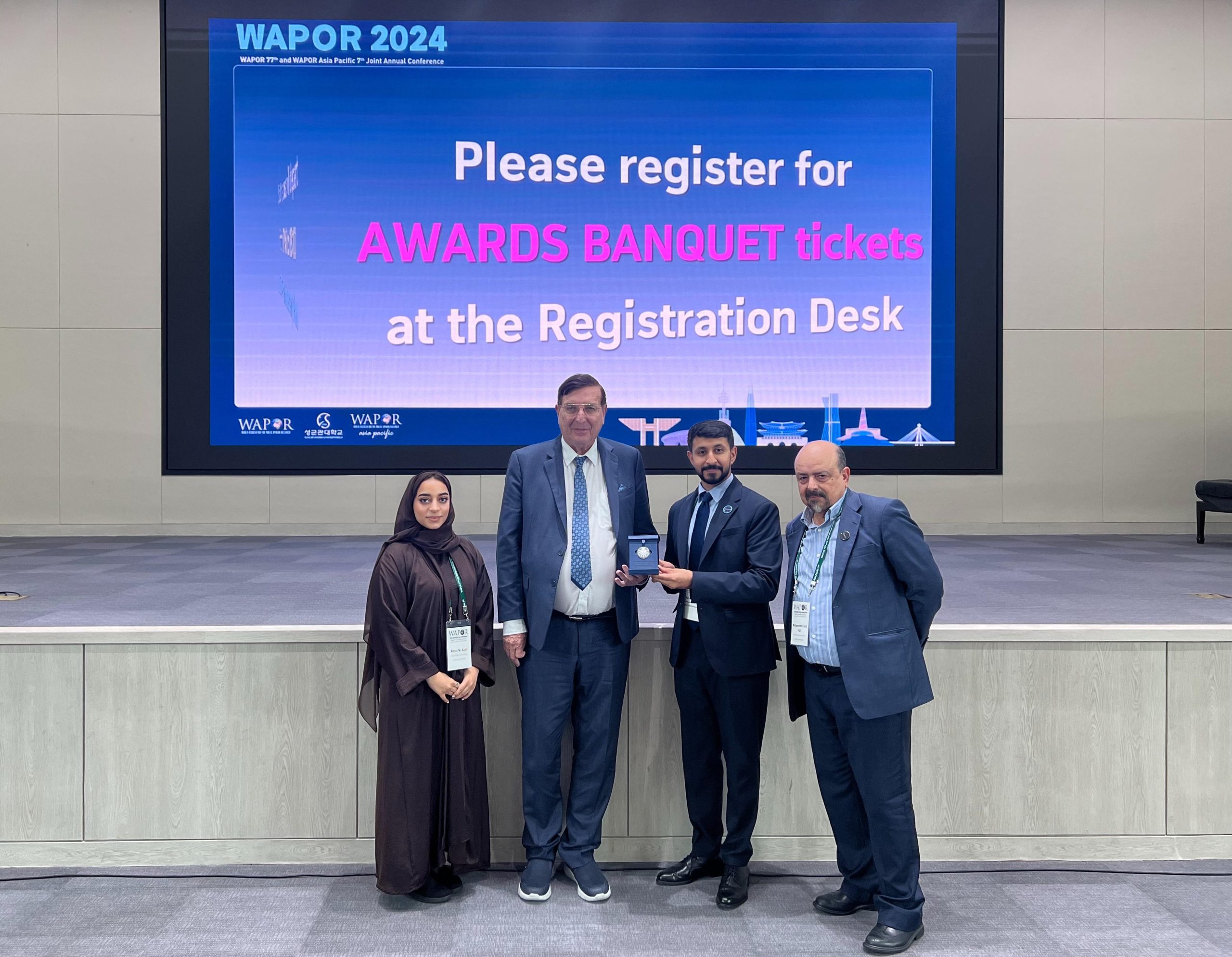TRENDS Research and Advisory participated with a research paper in the 77th Annual Conference of the World Association for Public Opinion Research (WAPOR), held from July 28 to 31 at Sungkyunkwan University in Seoul, South Korea.
The Center was represented by Ali Abdullah Al Ali, Researcher and Director of TRENDS Dubai, Dr. Mohammed Farid Azzi, Advisor at TRENDS Dubai, and Abrar Mohammed Al-Ali, Researcher and Opinion Poll Specialist at TRENDS. The conference sessions discussed several topics, including artificial intelligence challenges in public opinion research and survey methods, policymaking and survey research, political behavior and participation in survey research, and othres.
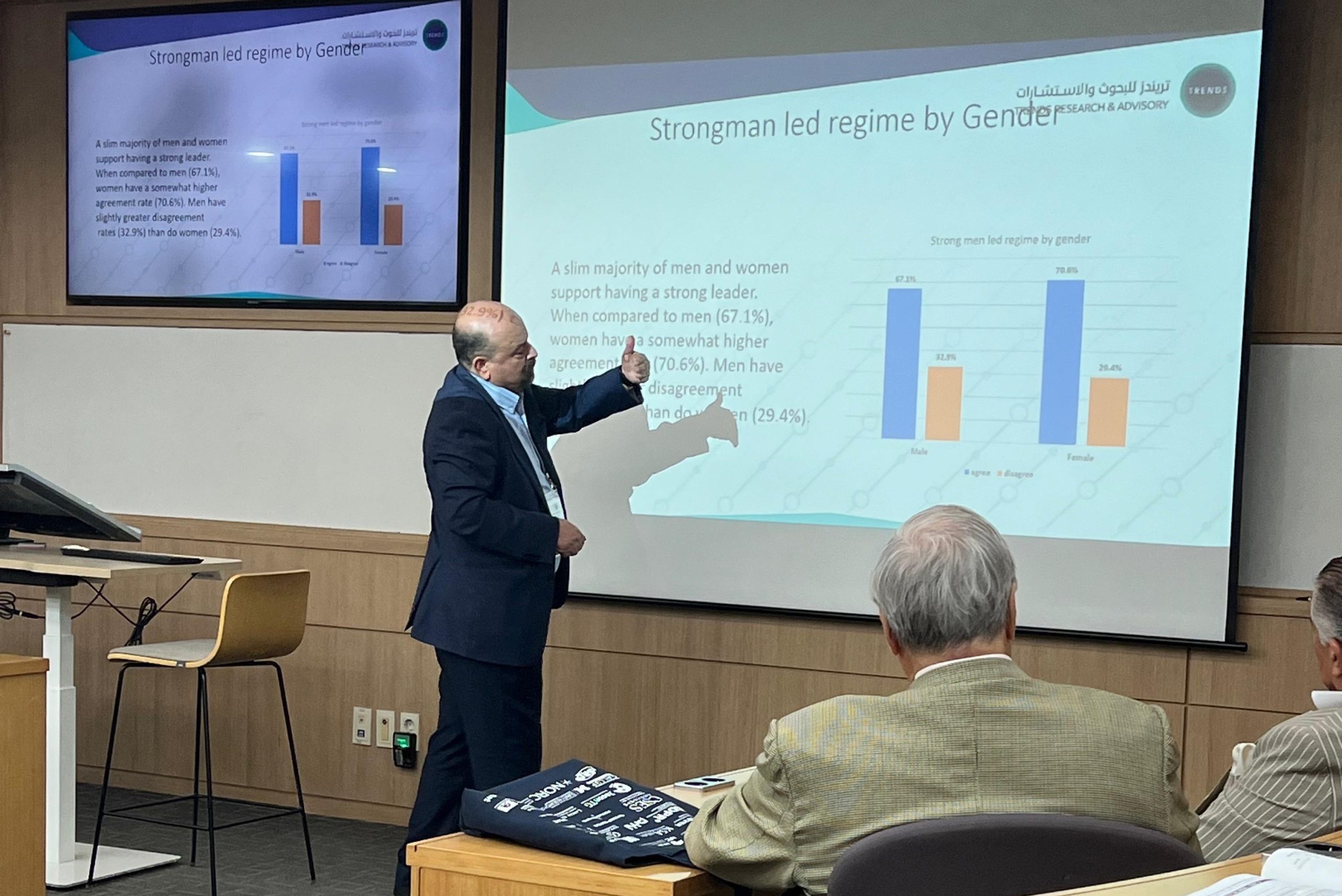 Widescale Survey
During the session on “Public Opinion Research in the Middle East, North Africa, and the GCC”, Dr. Mohammed Farid Azzi, advisor at TRENDS Dubai, presented a paper titled “What Political System Do Arabs Prefer, and Why?”, based on a widescale survey that included over 26,000 citizens from 12 Arab countries.
Widescale Survey
During the session on “Public Opinion Research in the Middle East, North Africa, and the GCC”, Dr. Mohammed Farid Azzi, advisor at TRENDS Dubai, presented a paper titled “What Political System Do Arabs Prefer, and Why?”, based on a widescale survey that included over 26,000 citizens from 12 Arab countries.
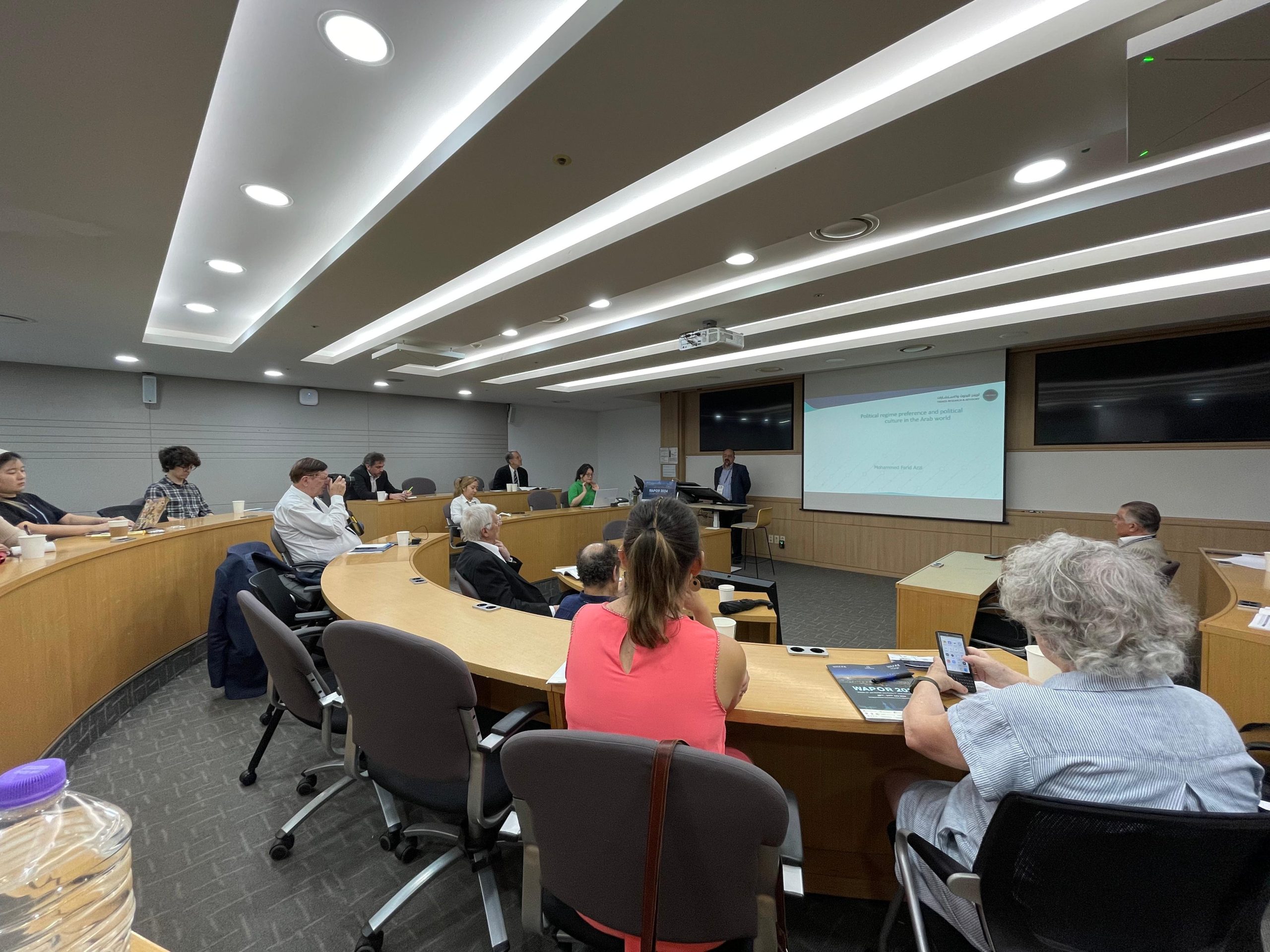 Dr. Azzi explained that the paper covered 12 questions out of 200 included in the Arab Barometer survey. Its primary purpose was to gauge the Arab public’s opinion on political systems, including “a strong effective leader”, “a government capable of solving the country’s economic problems regardless of its political nature,” and “a government that can maintain order and ensure stability”.
Dr. Azzi explained that the paper covered 12 questions out of 200 included in the Arab Barometer survey. Its primary purpose was to gauge the Arab public’s opinion on political systems, including “a strong effective leader”, “a government capable of solving the country’s economic problems regardless of its political nature,” and “a government that can maintain order and ensure stability”.
 He noted that the answers to these questions were somewhat unexpected, with the majority preferring the rule of a strong effective leader (68%), a government capable of solving economic problems regardless of its nature (70%), and a government that can maintain security and ensure political and social stability (65%).
He noted that the answers to these questions were somewhat unexpected, with the majority preferring the rule of a strong effective leader (68%), a government capable of solving economic problems regardless of its nature (70%), and a government that can maintain security and ensure political and social stability (65%).
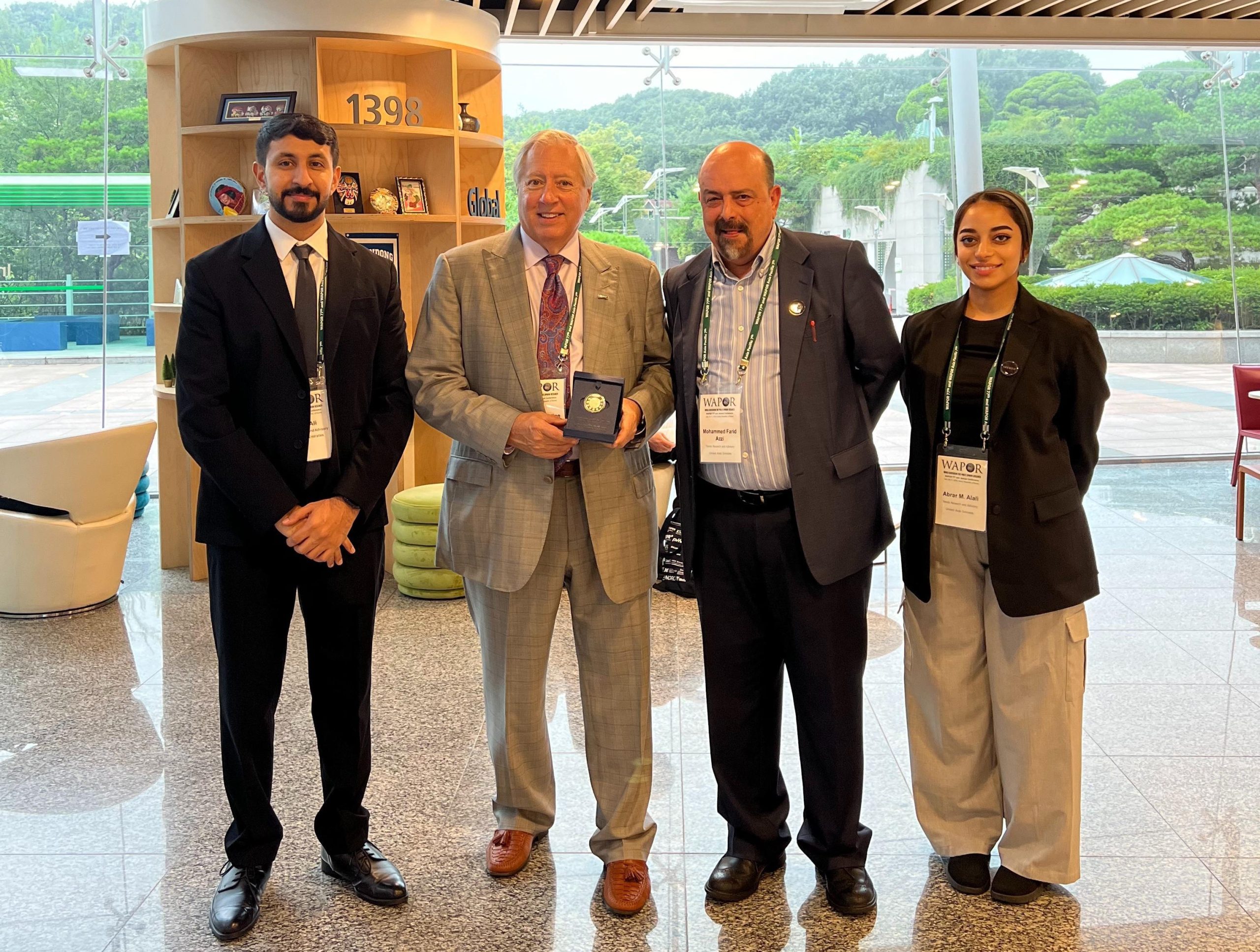 Economic Development
Dr. Azzi stated that the findings revealed that the Arab public desires economic dignity and strongly needs a political system that can achieve it. The findings also indicated that the Arab public has become convinced that transitioning to a politically pluralistic and open system does not guarantee economic development. Furthermore, political transitions towards a pluralistic system often lead to the disintegration of security systems, resulting in political and social instability
Economic Development
Dr. Azzi stated that the findings revealed that the Arab public desires economic dignity and strongly needs a political system that can achieve it. The findings also indicated that the Arab public has become convinced that transitioning to a politically pluralistic and open system does not guarantee economic development. Furthermore, political transitions towards a pluralistic system often lead to the disintegration of security systems, resulting in political and social instability
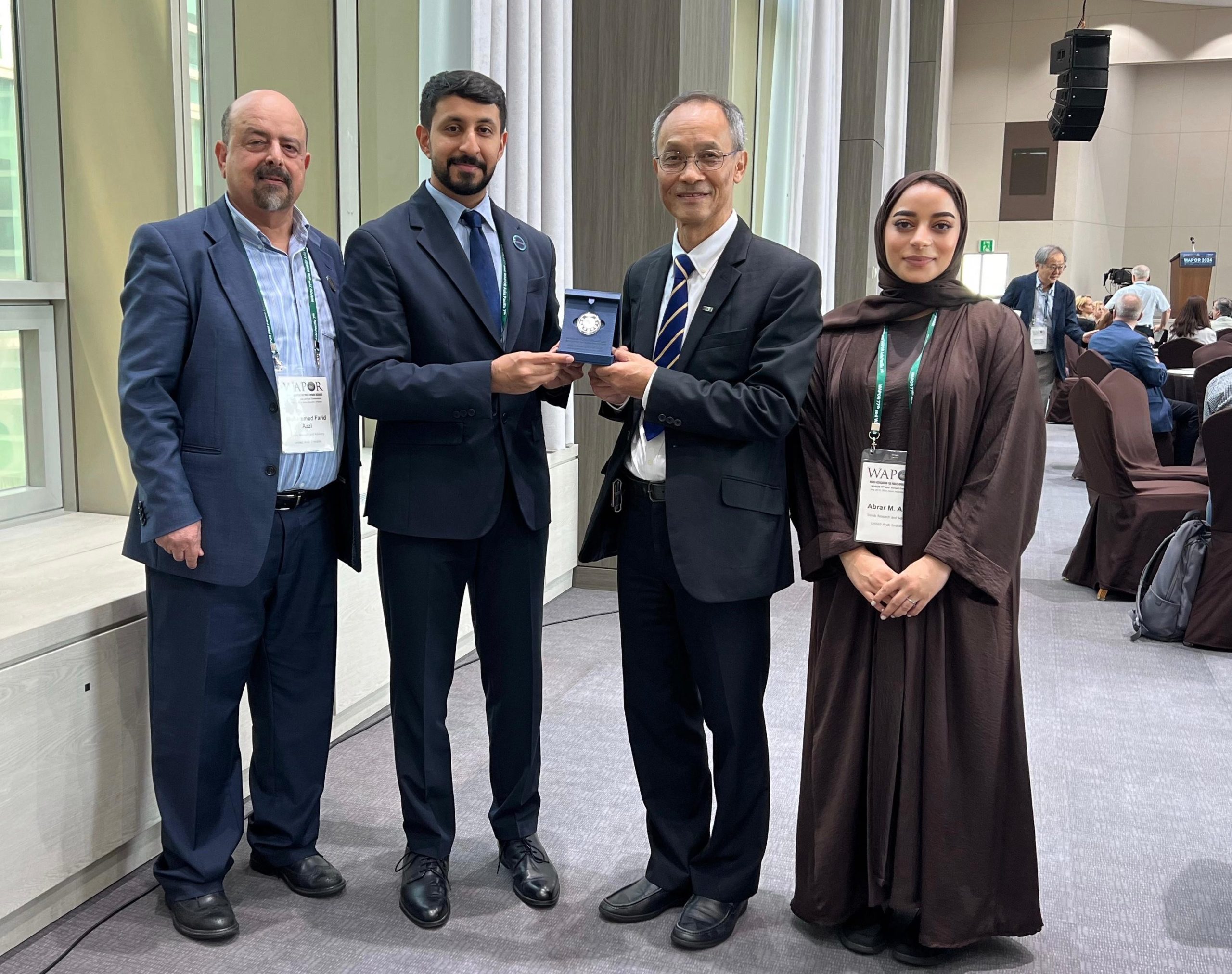
 Widescale Survey
During the session on “Public Opinion Research in the Middle East, North Africa, and the GCC”, Dr. Mohammed Farid Azzi, advisor at TRENDS Dubai, presented a paper titled “What Political System Do Arabs Prefer, and Why?”, based on a widescale survey that included over 26,000 citizens from 12 Arab countries.
Widescale Survey
During the session on “Public Opinion Research in the Middle East, North Africa, and the GCC”, Dr. Mohammed Farid Azzi, advisor at TRENDS Dubai, presented a paper titled “What Political System Do Arabs Prefer, and Why?”, based on a widescale survey that included over 26,000 citizens from 12 Arab countries.
 Dr. Azzi explained that the paper covered 12 questions out of 200 included in the Arab Barometer survey. Its primary purpose was to gauge the Arab public’s opinion on political systems, including “a strong effective leader”, “a government capable of solving the country’s economic problems regardless of its political nature,” and “a government that can maintain order and ensure stability”.
Dr. Azzi explained that the paper covered 12 questions out of 200 included in the Arab Barometer survey. Its primary purpose was to gauge the Arab public’s opinion on political systems, including “a strong effective leader”, “a government capable of solving the country’s economic problems regardless of its political nature,” and “a government that can maintain order and ensure stability”.
 He noted that the answers to these questions were somewhat unexpected, with the majority preferring the rule of a strong effective leader (68%), a government capable of solving economic problems regardless of its nature (70%), and a government that can maintain security and ensure political and social stability (65%).
He noted that the answers to these questions were somewhat unexpected, with the majority preferring the rule of a strong effective leader (68%), a government capable of solving economic problems regardless of its nature (70%), and a government that can maintain security and ensure political and social stability (65%).
 Economic Development
Dr. Azzi stated that the findings revealed that the Arab public desires economic dignity and strongly needs a political system that can achieve it. The findings also indicated that the Arab public has become convinced that transitioning to a politically pluralistic and open system does not guarantee economic development. Furthermore, political transitions towards a pluralistic system often lead to the disintegration of security systems, resulting in political and social instability
Economic Development
Dr. Azzi stated that the findings revealed that the Arab public desires economic dignity and strongly needs a political system that can achieve it. The findings also indicated that the Arab public has become convinced that transitioning to a politically pluralistic and open system does not guarantee economic development. Furthermore, political transitions towards a pluralistic system often lead to the disintegration of security systems, resulting in political and social instability




